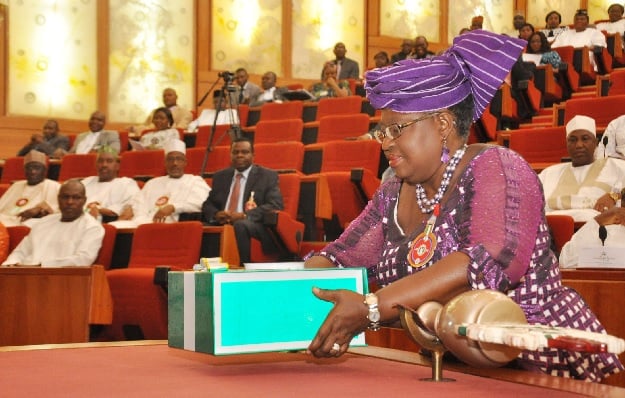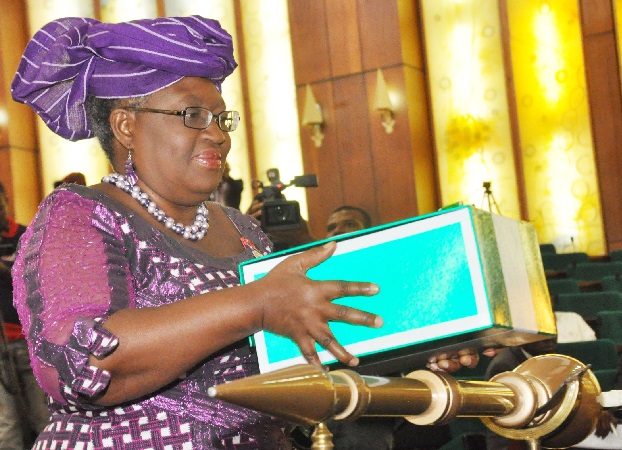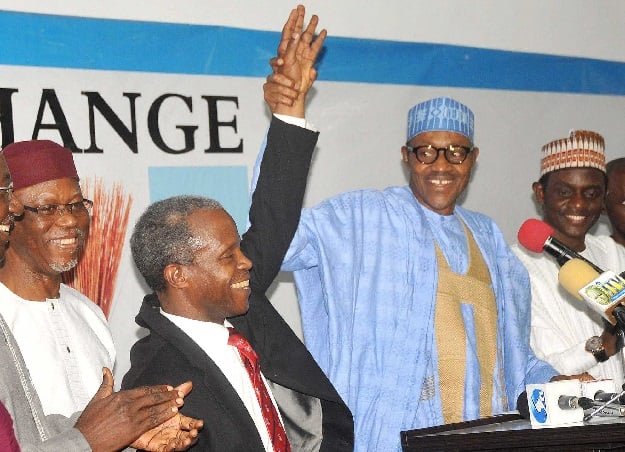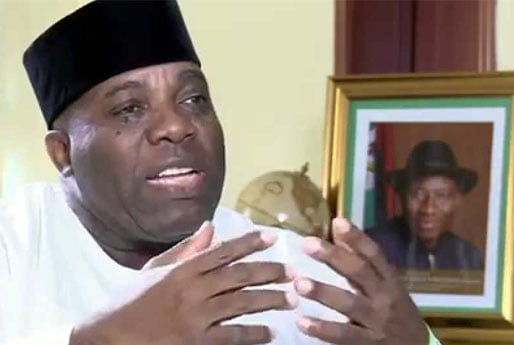Ngozi-Okonjo-Iweala, the coordinating minister of the economy and minister of finance, on Wednesday laid the 2015 budget before both chambers of the national assembly.
The budget rests on a benchmark oil price of $65 a barrel and the production forecast for oil was set at 2.27 million barrels per day.
“I have laid the budget on behalf of his Excellency, Mr. President,” she told journalists after exiting the chamber.
“This budget is based on few indicators, the $65 a barrel benchmark and we are going to stick to it for now despite the declining prices because we feel the average price next year will be around $65 to $70. The production level is 2.27 million barrel per day.”
Advertisement
The event, which legislative observers described as unceremonious, marks the beginning of a long and tedious process of review, debate, defence and approval of the budget.
However, the medium term expenditure framework (MTEF), which ought to be approved first before commencement of deliberations on the budget, has not received the assent of the national assembly, which implies that the appropriation bill may be delayed.
The proposed 2015 budget is N4.357.96 trillion with capital expenditure totalling N627.16 billion and recurrent expenditure totalling N2.622 trillion.
Advertisement
The federal government projected that the economy would grow at 5.5 per cent in 2015, a reduction from the earlier projection of 6.4 per cent.
Okonjo-Iweala attributed the downward review of the of the country’s economic growth potentials to lower oil revenues.
Oil only accounts for about 15 per cent of Nigeria’s GDP, but it makes up 75-80 per cent of government revenues. Government finances have been hammered by a near halving of world oil prices since June.
Advertisement
“This budget points to the fact that this country is a non-oil country and I think we want Nigerians to begin to think of the country in that way,” she added.
Okonjo-Iweala said the prices of food items remained stable across markets in the country despite the devaluation of the naira.
“Despite the naira devaluation, there has been a very marginal increase in food prices due to increased food harvests. Nigerians are not paying more for food despite the devaluation, because agriculture is working,” she said.
She cited figures obtained from different popular markets across the country, urging members of the public to confirm the figures if they wish.
Advertisement
“For example, the wholesale price for beans in Bodija market Ibadan was N18,500 (100kg) on October 10, 2014 and did not change by December 15. In Dawanu market in Kano, the wholesale price for maize (white) (100kg) was N5,500 on October 10 and this declined to N4,933 by December 15.
“In Mile 12 market in Lagos, the wholesale price for gari (white) (60 kg) was N5,500 on October 10 and increased slightly to N5,643 by December 15. In Ogbete market in Enugu, the wholesale price for beans, gari (white) and sorghum did not change between October 10 and December 15, but the wholesale price of gari (white) (100 kg) declined from N6,800 to N3,800.
Advertisement
“So the prices of foodstuff have remained relatively stable. Even as of this morning, checks in various locations such as the Ugah and Achina markets in Anambra state, and the central and station markets in Kaduna showed relative stability in prices.”
Advertisement
The National Bureau of Statistics (NBS) data on consumer price index for the month of November 2014 also show that inflation eased for the third consecutive month from 8.1 per cent to 7.9 per cent, as a result of slower rise in food prices. So the efforts of government to boost food production all across the country are paying off.”
The minister encouraged Nigerians to see these challenging times as times of opportunities to further move this economy on the right path.
Advertisement
“This administration had taken to diversification seriously and began to make inroads prior to this time. The non-oil sector, whose growth has averaged about 8 per cent in the last few years, is the primary driver of growth in the economy unlike the oil sector, which is actually contracting.”
Okonjo-Iweala also stated that evidence of this diversification could be seen in the agriculture sector, where food imports declined from N1.1 trillion ($6.7 billion) in 2009 to N 684 billion ($4.35 billion) in 2013 and continues to decline.
“We added 12 million metric tonnes (MT) of food to our domestic food supply according to ministry of agriculture data. These include maize: 6.13 million MT; rice: 3.25 million MT; cassava: 2.12 million MT, amongst others.
“Commodity prices monitored and published by the NOVUS Agro Nigeria Commodity Index buttress this assertion.”
David Mark, the senate president, who adjourned the sitting to January 13, urged lawmakers to study the budget while on recess.
Add a comment









